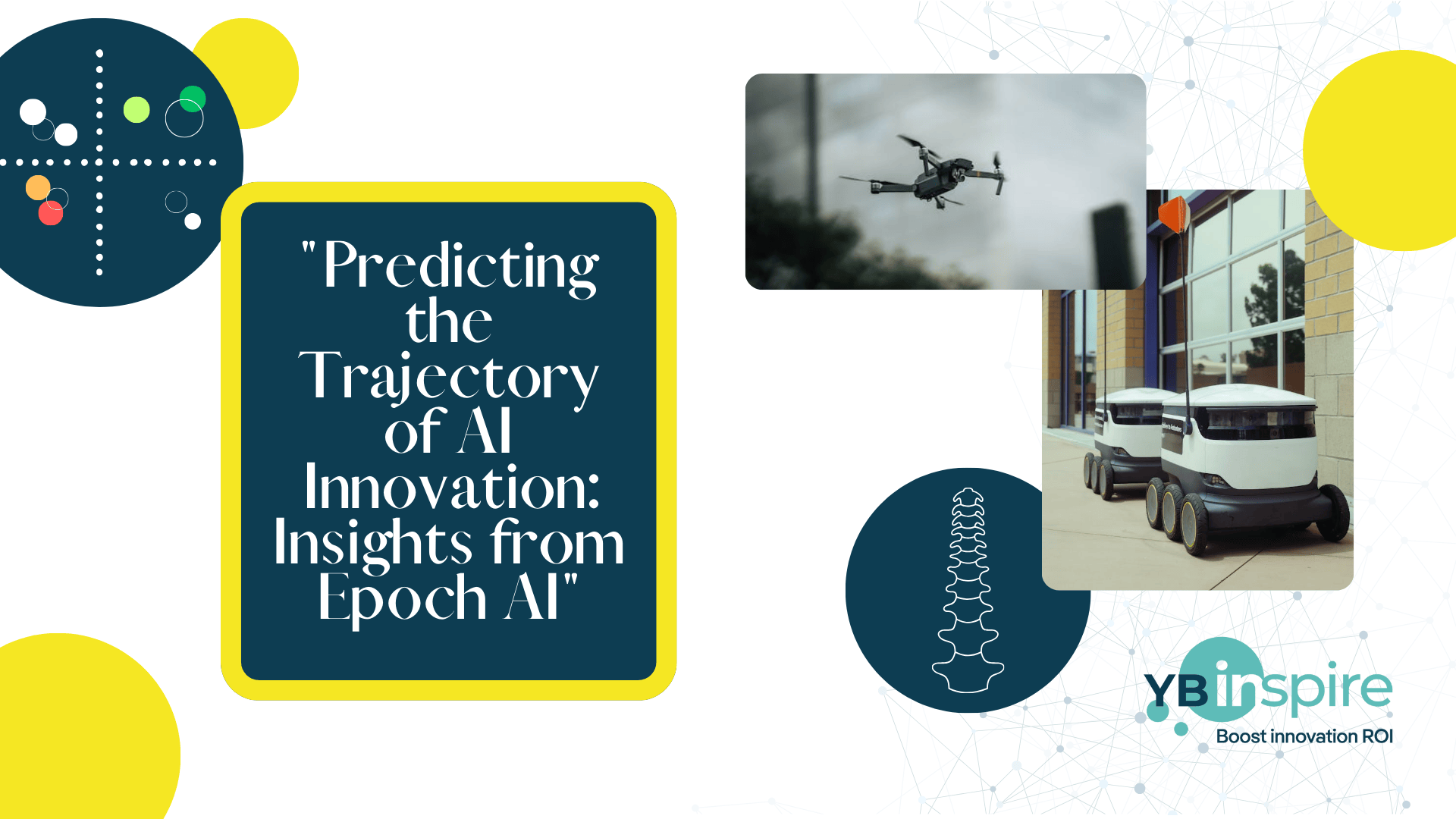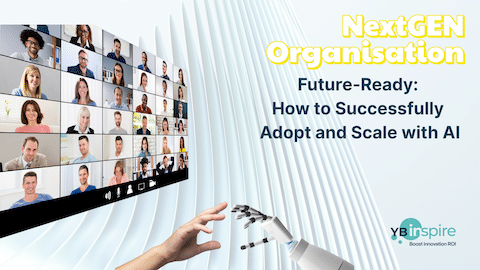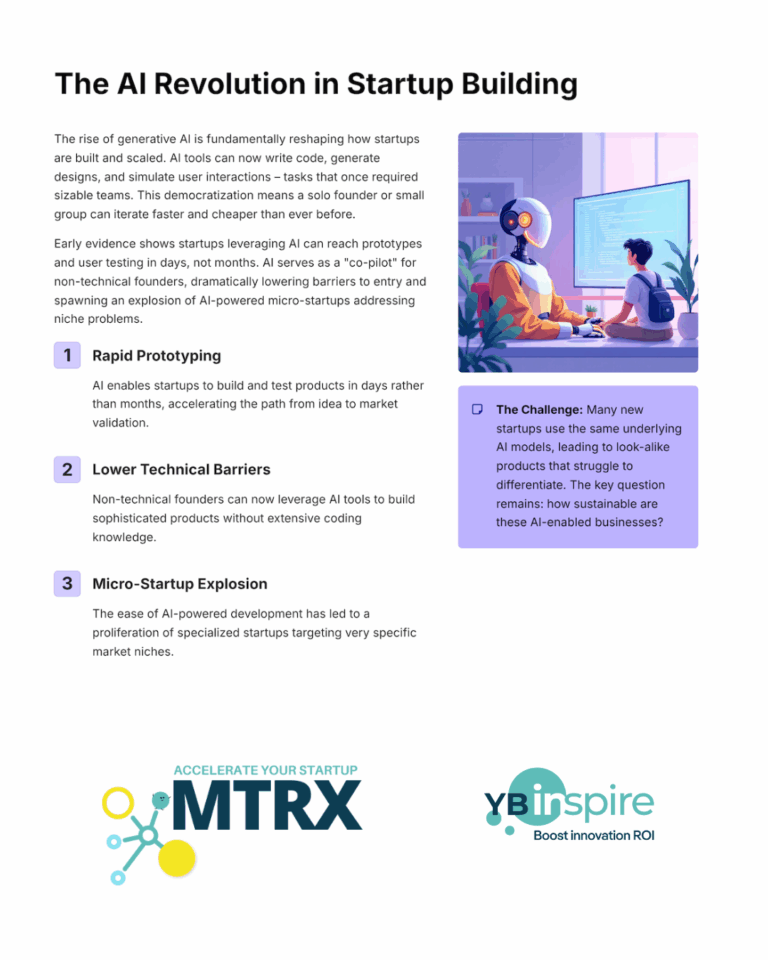Predicting the Trajectory of AI Innovation: Insights from Epoch AI. The landscape of artificial intelligence (AI) is evolving at an unprecedented pace, and understanding its trajectory is vital for anticipating its future impact. Epoch AI, with its innovative approach to AI development, serves as a critical lens through which we can explore the future of this transformative technology. In this article, we delve into the various dimensions of AI, focusing on its importance, historical context, and the current trajectory of innovation that is shaping our world.
Understanding AI Innovation and Its Trajectory
What is AI and Its Importance?
Artificial intelligence (AI) refers to the simulation of human intelligence in machines programmed to think and learn. The importance of AI lies in its potential to automate complex tasks, enhance decision-making processes, and drive significant economic growth. As AI systems evolve, they integrate advanced machine learning and deep learning techniques, enabling them to analyze vast datasets and predict outcomes with remarkable accuracy. This capability is crucial for industries ranging from healthcare to finance, where AI can optimize operations and improve service delivery. By investing in AI technologies, societies can harness its power to transform productivity and innovation, making it a cornerstone of modern information technology.
The Historical Context of AI Development
The journey of AI development can be traced back to the mid-20th century, with early explorations into neural networks and algorithms. Throughout the decades, significant milestones have marked the evolution of AI, including the advent of machine learning in the 1990s and deep learning breakthroughs in the 2010s. Each epoch has contributed to an enhanced understanding of AI capabilities, paving the way for large-scale AI models that are now at the forefront of technological advancement. As we reflect on this historical context, we recognize that AI’s trajectory has been characterized by waves of innovation driven by compute advancements, leading to the automation of tasks that were once thought to be exclusively human domains.
The Current Trajectory of AI Innovation
Today, AI innovation is on a rapid ascent, with predictions indicating significant developments in the coming years. The current trajectory of AI is marked by extensive investments in AI research and the integration of transformative AI systems across various sectors. Epoch AI’s compute-centric model of AI automation illustrates key dynamics in this progression, suggesting that substantial AI investments will correlate with economic growth. As organizations increasingly leverage AI capabilities, the emphasis on training and inference within neural network models will play a pivotal role. This focus not only enhances AI systems’ performance but also expands their application, making them indispensable tools for forecasting and decision-making by 2024 and beyond.
Epoch AI: A Case Study
Overview of Epoch AI
Epoch AI stands at the forefront of artificial intelligence innovation, embodying a model of AI automation that integrates compute-centric approaches and deep learning techniques. Founded by two pioneering researchers, Epoch AI has rapidly emerged as a leader in developing transformative AI technologies. This organization focuses on scalable solutions that enhance AI capabilities across various sectors, from healthcare to finance. With a commitment to pushing the boundaries of AI development, Epoch AI has established an AI benchmarking hub that serves as a repository for data, algorithms, and best practices. As we look toward 2024 and beyond, the influence of Epoch AI is expected to grow, shaping the trajectory of AI innovation and guiding organizations in harnessing AI’s potential to optimize operations and drive economic growth.
Key Innovations from Epoch AI
Epoch AI has introduced several key innovations that are redefining the landscape of AI technologies. Among these is the pioneering launch of FrontierMath, a cutting-edge framework designed to enhance mathematical computations within AI systems. This innovation allows for more efficient processing of large datasets, significantly improving the performance of neural network models. Additionally, Epoch AI has raised $7 million in funding, enabling further research and development aimed at scaling AI capabilities. Their engagement with industry leaders has fostered collaborative efforts to advance AI research, contributing to a deeper understanding of AI’s trajectory. With a focus on training and inference processes, Epoch AI is positioned to create predictive models that forecast the future developments in AI, leading to more informed decision-making across various applications.
Impact of Epoch AI on the AI Landscape
The impact of Epoch AI on the AI landscape is profound, as evidenced by their 2024 Impact Report, which highlights influential research and the trajectory of AI’s development. Epoch AI has become a catalyst for AI progress, demonstrating how targeted investments in AI can lead to significant advancements. Their model of AI automation not only streamlines operational processes but also addresses critical issues such as privacy policy and ethical AI usage. As organizations increasingly adopt Epoch AI’s innovations, the integration of AI systems into everyday business practices is expected to accelerate. This shift will not only enhance productivity but also redefine the roles of human workers, ushering in a new era where AI technologies play a pivotal role in shaping economic growth and innovation across industries.
Predicting the Future of AI
The Role of Neural Networks in Predictions
Neural networks play a pivotal role in predicting the trajectory of artificial intelligence (AI). These sophisticated algorithms are designed to mimic the human brain, allowing AI systems to learn from vast datasets and enhance their predictive capabilities. In the context of AI innovation, neural networks facilitate the development of complex models that can analyze inputs and forecast outcomes with remarkable accuracy. For instance, advancements in deep learning have enabled the creation of large-scale AI models that can automate tasks across various domains, from healthcare to finance. As organizations invest in AI training and refine their neural network models, the potential for accurate trajectory predictions increases, thereby shaping the future landscape of AI technologies. The integration of neural networks into AI systems could lead to groundbreaking innovations that redefine how we approach problem-solving in the digital age.
Developing a Trajectory Prediction Model
Developing a trajectory prediction model is essential for understanding the future dynamics of AI innovation. Such models leverage advanced algorithms and machine learning techniques to forecast potential developments within the AI landscape. By analyzing historical data and identifying key patterns, researchers can create predictive frameworks that inform strategic decision-making. Epoch AI’s approach to building trajectory prediction models emphasizes the importance of compute power and data quality, as these factors significantly impact the accuracy of predictions. Furthermore, the model of AI automation proposed by Epoch AI integrates various AI algorithms to enhance the forecasting process. As a result, organizations can better anticipate shifts in AI capabilities and align their investments accordingly, ensuring they remain at the forefront of this rapidly evolving field as we approach 2024 and beyond.
Challenges in AI Forecasting
Despite the advancements in predicting the trajectory of AI, several challenges persist in AI forecasting. Economists and researchers often propose various approaches to understanding how AI will automate valuable tasks, yet disagreements remain regarding the most effective methods. The lack of consensus on predictive frameworks highlights the complexities involved in AI development and its impact on economic growth. Moreover, the rapid pace of innovation introduces uncertainty, making it difficult to accurately forecast future trends. Issues such as data privacy policies, ethical considerations, and the integration of AI systems further complicate the forecasting landscape. As organizations strive to harness the potential of AI technologies, overcoming these challenges will be crucial for refining trajectory prediction models and ensuring the responsible advancement of AI innovation.
Automation and Its Relationship with AI Development
How Automation is Shaping AI Trajectories
Automation plays a central role in shaping the trajectory of artificial intelligence (AI) development, acting as a catalyst for innovation and efficiency gains across industries. As organizations embrace automation, they increasingly integrate AI systems into their workflows, enabling a new era of productivity. The ability of AI to automate complex tasks liberates human workers from repetitive duties, allowing them to focus on strategic initiatives. This shift not only enhances operational efficiency but also fosters significant economic growth as companies leverage AI capabilities to innovate and streamline processes. The key dynamics of AI development are influenced by these automation trends, as organizations invest heavily in AI training and infrastructure, ensuring that their AI systems can learn from vast datasets and continuously improve their performance. As we look toward 2024 and beyond, the interplay between automation and AI will only deepen, driving advancements in AI technologies and reshaping the future of work.
Future Automation Trends and AI
As we move forward, several notable automation trends are expected to emerge, fundamentally altering the landscape of artificial intelligence. The integration of AI with automation technologies, such as robotic process automation (RPA) and intelligent automation, will create a more seamless experience for businesses. These advancements will enhance the capabilities of AI systems, enabling them to process inputs more efficiently and deliver more accurate predictions. Moreover, the rise of edge computing is likely to play a significant role in this evolution, facilitating real-time data processing and analysis closer to the source. This shift will further optimize AI performance by reducing latency and enhancing the responsiveness of AI applications. By 2025, we can anticipate that these automation trends will lead to the development of more adaptive AI systems capable of learning from their environments, thus refining their operations and contributing to broader economic growth in various sectors.
Ethical Considerations in AI and Automation
With the rapid advancement of AI and automation, ethical considerations have become increasingly critical to the discourse surrounding technology development. As AI systems automate tasks traditionally performed by humans, questions arise regarding data privacy, accountability, and the potential for bias in AI algorithms. Organizations must prioritize the establishment of robust privacy policies that safeguard user data while ensuring transparency in AI decision-making processes. Additionally, the ethical implications of AI automation extend to the labor market, where the displacement of jobs raises concerns about social equity and workforce transitions. It is essential for stakeholders to engage in thoughtful discussions about the responsible implementation of AI technologies and automation strategies that prioritize human welfare. By addressing these ethical challenges proactively, the industry can foster public trust in AI innovation, ensuring that the trajectory of AI development aligns with societal values and benefits all sectors of the economy.
Enhance more AI in your organisation.
Learn with our Future AI organisation program here
Read their announcement here: Epoch AI










